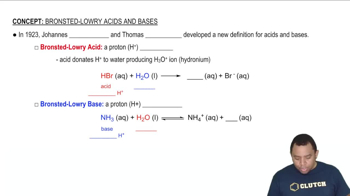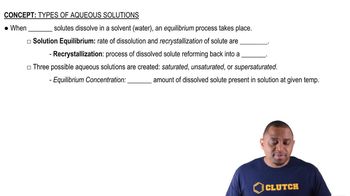Textbook Question
Which of the indicators given in Figure 16.5, methyl violet, bromcresol green, phenol red, or thymolphthalein, would be most appropriate to detect a pH change from: (b) 8 to 10?

 Verified step by step guidance
Verified step by step guidance


Which of the indicators given in Figure 16.5, methyl violet, bromcresol green, phenol red, or thymolphthalein, would be most appropriate to detect a pH change from: (b) 8 to 10?
Which of the indicators given in Figure 16.5, methyl violet, bromcresol green, phenol red, or thymolphthalein, would be most appropriate to detect a pH change from: (c) 2 to 0?
Calculate the pH of solutions prepared by: (a) Dissolving 4.8 g of lithium hydroxide in water to give 250 mL of solution.
Calculate the pH of solutions prepared by: (d) Mixing 100.0 mL of 2.0 * 10-3 M HCl and 400.0 mL of 1.0 * 10-3 M HClO4. (Assume that volumes are additive.)